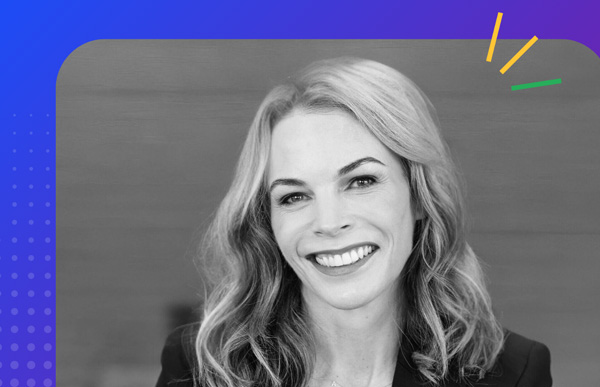Gen Z: Shaping change in the multigenerational workforce
HR professionals must adapt to demographic shifts to keep workplaces relevant

- Gen Z employees were 2x more likely to interview for new roles in the last quarter of 2024 than the national average (Gen Z 15% cf. 8% national average)
- Gen Z feel the most motivated generation (43%) to ask for a pay rise (cf. Baby Boomers 3%, Gen X 22% and millennials 36%)
- For Gen Z, the most frustrating aspect of recruitment is receiving salary information too late in the process (38%)
- 20% of Gen Z rated the onboarding process for their recent job appointment 5 or less out of 10
5 February, 2025 – New research by ELMO Software reveals Gen Z (those born between 1997 and 2012) has distinct expectations for work and is shaping new workplace trends, from job-seeking behaviours to their approach within the workplace.
The latest ELMO Employee Sentiment Index (ESI) report, covering the quarter of October – December 2024, surveyed over 1,000 Australian workers about their current workforce challenges, providing an interesting snapshot of generational workplace trends and the broader cultural and economic outlook.
Bolder salary conversations
The workforce today spans the broadest age range in history, with ELMO’s research revealing Gen Z often thinks and acts differently from other generations. Gone are the days of employees tip toeing around salary. Gen Z employees are the most motivated by current economic conditions to actively request a pay rise (43%), sharply contrasting with Baby Boomers (3%), Gen X (22%) and even millennials (36%).
While Gen Z is often stereotyped as prioritising purpose, culture, and community, the research found remuneration is their top priority (22%). Additionally, 34% of Gen Z workers feel they’re not paid fairly for their work, compared to 28% of millennials and Gen X workers, and 19% of Boomers.
Job stability (13%) was deemed the second highest priority for Gen Z with culture and career development coming in tied third at 10%. Interestingly, only 6% of Gen Z rated flexible and remote working as their number one priority.
Gen Z advocate for themselves
While job stability rates highly, findings suggest Gen Z workers are less likely to be loyal to their employer. 17% of Gen Z applied for a new role in a new company (cf. 11% national average) and 15% interviewed for a role in a new company (cf. 8% national average).
This is despite the fact they’re most likely to have earned a promotion in Q4 of last year (16% compared to the national average of 7% and double that of their millennial counterparts).
The latest research findings suggest early 2025 may also see Gen Z keeping their eyes peeled for fresh opportunities. While 72% believe they’re in the right role, seven in 10 feel like the new year is a good time to look for a new job, with Gen Z the most likely to make a career focused new year’s resolution (34% cf. 30% national average).
Frustrations with the recruitment and onboarding process
As the most mobile generation, Gen Z also has strong views on the recruitment and onboarding process. Twenty percent rated the onboarding process for their most recent job appointment five or less out of 10 (cf. 29% national average).
Gen Z (and all Australian workers) rate having no salary information till late in the recruitment process, the most frustrating part (Gen Z 38% cf. 37% national average). Other standard recruitment processes are putting Gen Z off side. Prolonged decision making or response times (tied first with salary at 37%), a lack of constructive feedback, multiple interview rounds and ghosting after the interview, are all considered equally frustrating (29%).
With the average time to hire an employee now taking 44 days, an all-time high according to a global report,* ELMO CEO Joseph Lyons says HR professionals must adjust their processes to attract and retain Gen Z talent.
“Gen Z has often been labelled as the most challenging workers, but as a generation that is driving innovation and challenging the status quo, they bring fresh perspectives to the workplace.
The future of tech-driven business transformation will largely be shaped by this cohort, and to thrive, businesses must foster people-centered change. Our aim is to help businesses unlock the full potential of their workforce through software automation, analytics, and world-class support, enabling them to understand who their people are, what they need, and how they work – all of which is evolving rapidly,” Lyons added.
New technology and automation contributing to job uncertainty
While job security and the economic outlook is improving slightly overall, almost half (49%) of Gen Z workers say they feel the need to work harder and longer hours to keep their job safe, compared to 40% of Millennials, 29% of Gen Xers, and 17% of Baby Boomers.
Gen Z (38%, cf. Millennials 31%, Gen X 22%, and Baby Boomers 13%) are the most concerned about potential redundancies, a factor likely shaping their job-seeking attitudes.
New technology and automation is doing nothing to ease workers’ concerns with 28% (cf. 22% national average) of Gen Z workers stating they believe their role will be automated in the next 5 years.
*Source: Global Talent Climate Report
- Generation Z includes individuals born between 1997 and 2012
- Generation Y/Millennials refers to people born between 1981 and 1996
- Generation X refers to people born between 1965 and 1980
- Baby Boomers are generally defined as individuals born between 1946 and 1964
About ELMO Software
Founded in 2002, the ELMO Group comprises ELMO Software in Australia, New Zealand and the UK, and Breathe HR in the UK. It is the trusted provider of HR technology solutions to 16,000+ small and mid-sized organisations and two million end users.
With a comprehensive suite of ISO-certified solutions that span the full employee lifecycle, ELMO Software is designed to scale as organisations grow. Flexible and configurable, ELMO’s one-stop HRIS fits to your specific needs and workflows.
Through powerful technology, automation, data and analytics, ELMO Software empowers HR professionals to play an integral role in company decision making.
For more information, please visit www.elmosoftware.co.nz or follow ELMO Software on LinkedIn.
 HR Core
HR Core 









